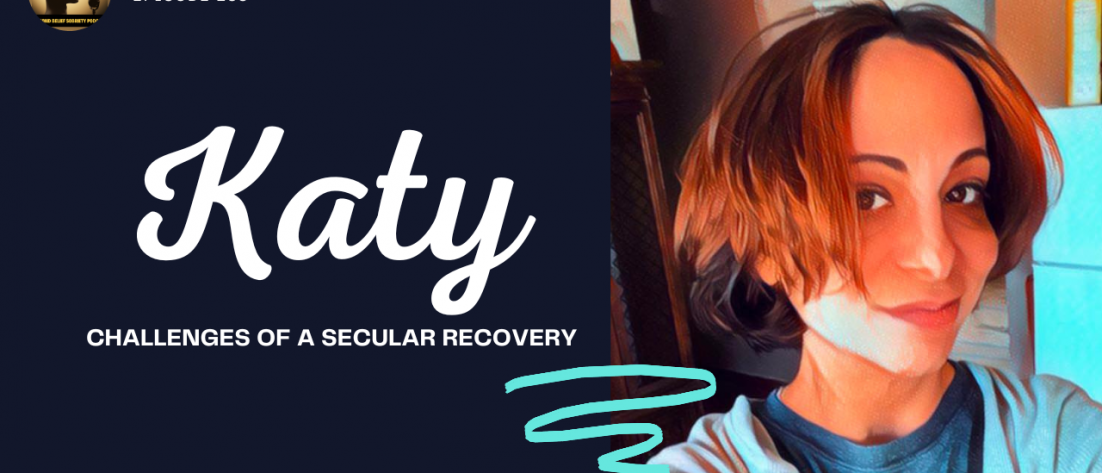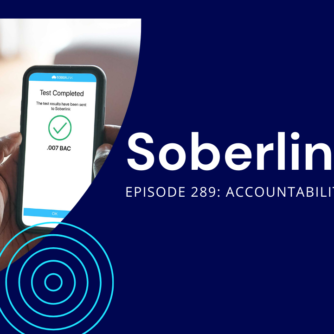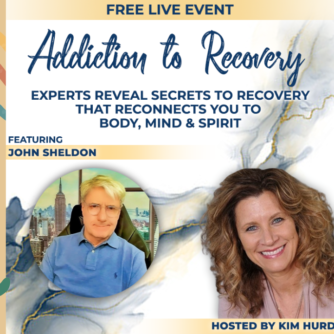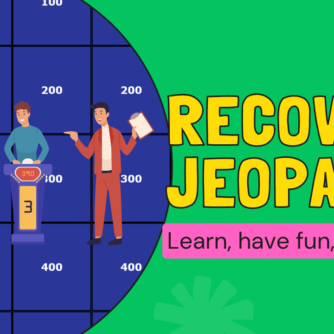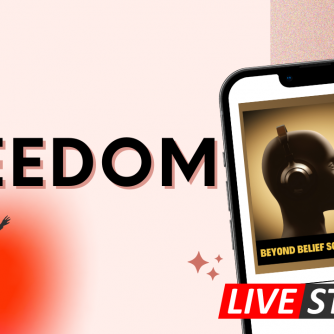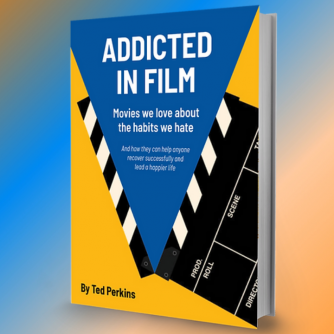As she shares with Host John Sheldon on this episode of Beyond Belief, entering recovery as a non-believer at the height of pandemic presented Katy Jacopi with special challenges. Where to find community and support when the Alcoholics Anonymous concept of a “higher power” isn’t the right fit? “The reason I couldn’t deny that I had an alcohol problem was my skepticism, my ability to ask questions and not just take something at face value,” she explains. “It’s who I am and I wouldn’t be where I am today without this thought process.” Like John, Katie is speaking out where she can to ensure that the most inclusive possible message reaches the greatest number of people – without shame or the need to subscribe to any one set of beliefs.
Katy, who is a poet and writer, shares the story of her journey to recovery, which she ultimately cobbled together with a mix of intuitive, personal choices. You’ll learn on this episode about the many alternative groups and formats that have sprung up to serve a broad spectrum of people – resources that can still be hard to locate today, let alone 25 years ago when John first got sober in a more narrowly AA-centric world. “We’re so conditioned to be afraid of doubt,” says Katy, who is starting a podcast on exactly that topic. “If we give voice to that fear, but also acknowledge how doubt has a positive impact on who we are as people, I think it can help facilitate a bigger conversation.” Get out your notepad. This conversation highlights lots of great recovery groups!
To view this and other episodes of Beyond Belief Sobriety on YouTube, visit this link.
Key Takeaways
After she was diagnosed with bipolarism, Katy uncovered the existence of a problem with alcoholism and went in search of secular support.
-
- Reframing “higher power” as something other than God still wasn’t a comfortable fit for Katy, who found the entire concept problematic, regardless the language or imagery in which it was couched.
- Can – or should – the 12 steps written nearly 100 years ago be reconceived in ways that make them more inclusive?
- Katy got clarity about her alcoholism through conversation with a knowledgeable, empathetic friend and writing poems about her experience getting sober.
- What defines sobriety? It’s a process of change as understood by each of us individually in our own way and time. Even if there’s a relapse, you are still going through a process of change!
- The most important thing when it comes to supporting recovery? Meet people where they are and with the intention of helping them reach their goals!
- John shares two resources he has explored:
- Reflections on the unfortunate tensions that can shroud AA meetings when people are unaccepting of those with a secular orientation.
- Often the most dogmatic people are the most vocal – and create the most tension in rooms – with regard to the necessity of a “higher power” in the context of AA.
- Dealing with a potential mental health issue? Removing alcohol is a great first step towards clarity, diagnosis and treatment.
- Openness is key to removing stigma and reaching people in search of recovery.
- The reasons Katy reached out to John:
- She’s starting her own podcast and wanted to experience being a guest.
- She sought an opportunity to share her story and ask her questions.
- She wanted to discuss hurdles she encountered as a non-believer seeking help.
- Katy shares plans for her upcoming podcast, which will feature stories about how doubt has factored into the lives of people in transition.
- Closing thoughts on the power of doubt, shame and navigating fear to find – and be confident about – our beliefs.
Key Quotes
“Many treatment centers and other organizations that have to do with recovery are staffed by people familiar with the 12 steps … and haven’t educated themselves beyond that.” (John)
“Ultimately I had to be true to myself and I am an atheist and … even back 30 years ago I didn’t use the term ‘higher power.’ ” (John)
“You decide for yourself what your recovery is … That word recovery has actually been defined by the Substance Abuse and Mental Health Services Administration (SAMHSA) as nothing more than a process of change, of personal growth.” (John)
“There is no definition that you put on someone else for what their recovery is.” (John)
“I didn’t want to walk into a community and be honest about my outlook on life only to maybe hinder someone else’s experience.” (Katy)
“The reason I couldn’t deny that I had an alcohol problem was my skepticism, my ability to ask questions and not just take something at face value … It’s who I am and I wouldn’t be where I am today without this thought process.” (Katy)
“It’s a shame that something that started out trying to be open and inclusive for everybody has somehow become more focused on a narrower path.” (John)
“We are fortunate that there are so many more ways to get sober now.” (John)
“I was drinking for all the wrong reasons and then dealing with the consequence and the fallout.” (Katy)
“The more people who talk about (addiction), the more opportunity exists that it will reach somebody who needs to hear it.” (Katy)
“Those of us who are sober and in a position to be open about it are doing a service because it helps eliminate the stigma behind not just having an addiction but being in recovery.” (John)
“We’re so conditioned to be afraid of doubt … If we give voice to that fear, but also acknowledge how doubt has a positive impact on who we are as people, I think it can help facilitate a bigger conversation.” (Katy)
Further Resources
- LifeRing Secular Recovery.
- Smart Recovery: Life Beyond Addiction.
- An online locator for secular AA meetings is available here.
- Women for Sobriety.
- The Soberish Book Club.
About Katy
Kathryn V. Jacopi, an adjunct professor, received her MFA in creative writing from Fairfield University. Her writings have appeared in Pudding Magazine, Statorec, Fjord, Manzano Mountain Review, and Drunk Monkeys. Kathryn’s poem received first place for the 2016 Hysteria Writing Competition. When she’s not reading, writing, and lesson planning, Kathryn’s either kayaking or enjoying her spouse’s fantastic cooking. This is Kathryn’s first publication in Fictional Café.
Follow Katy
Show Notes Written by knwhelmick at Fiverr
